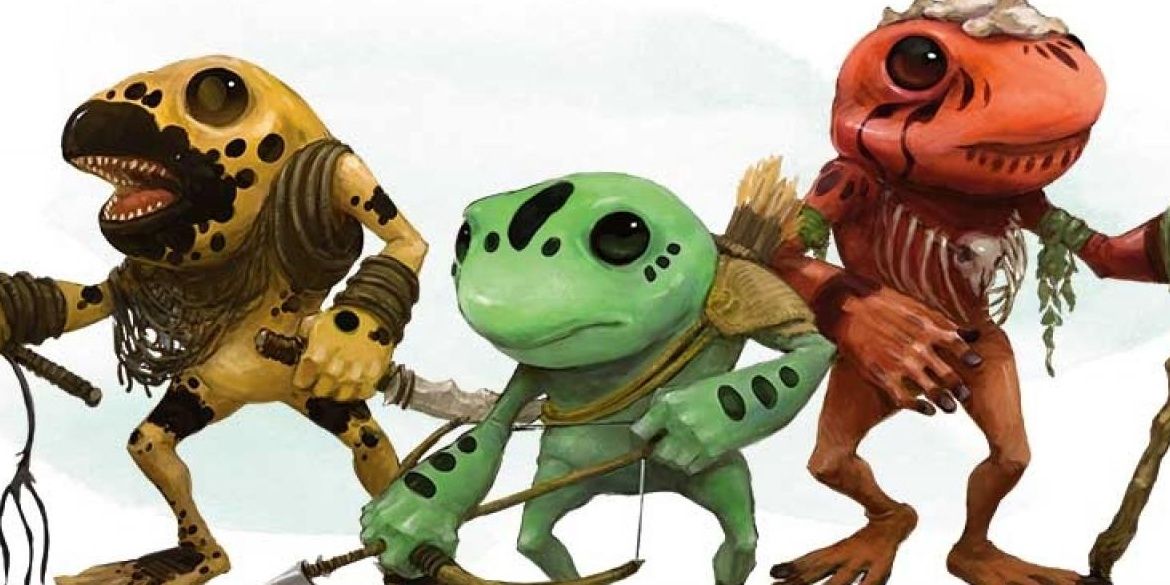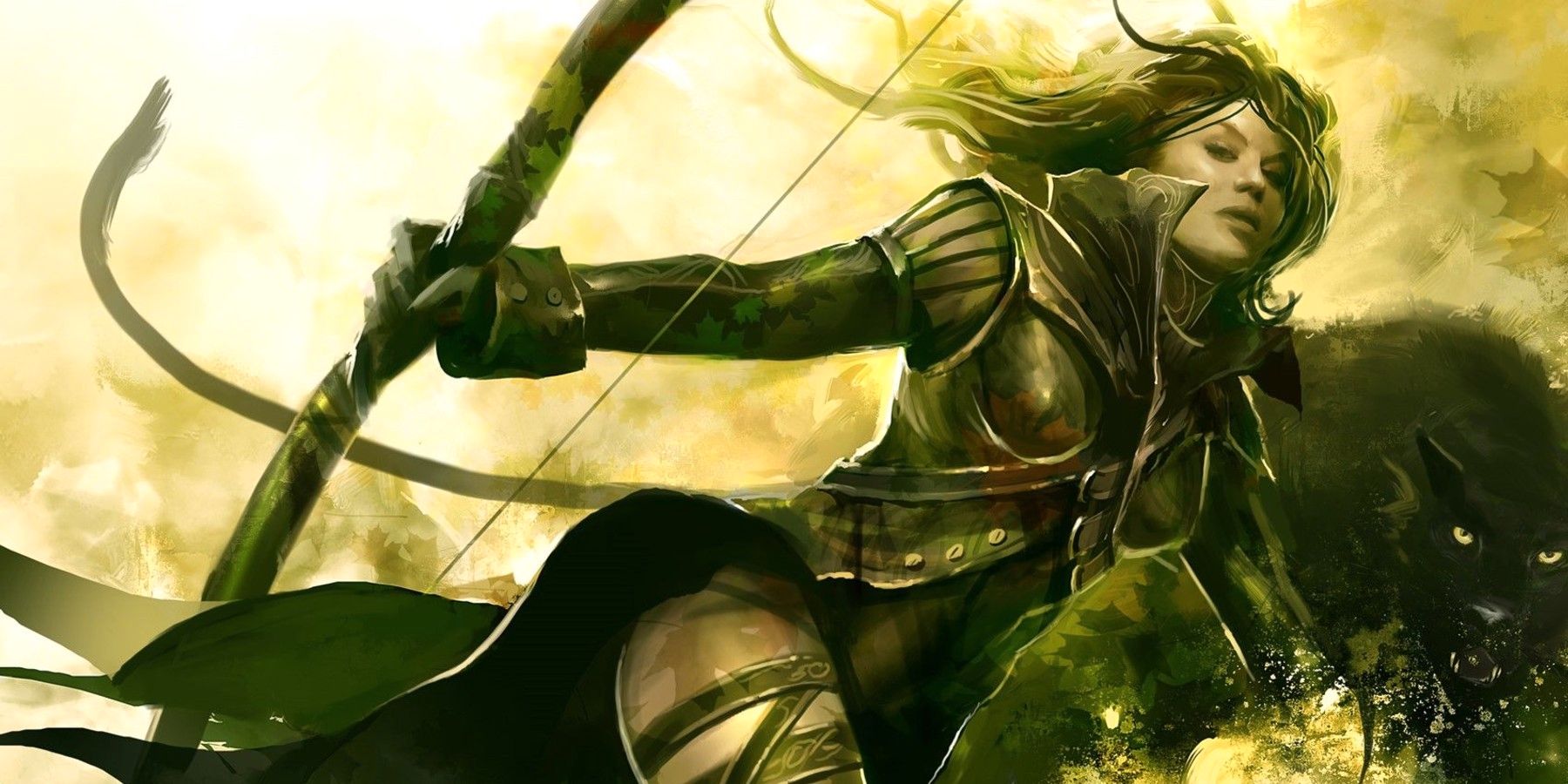Dungeons & Dragons is more popular than ever. A surge that began with the game's fifth edition and the release of the popular Stranger Things series on Netflix has fueled a rise in the game's popularity, only exacerbated by streaming shows like Critical Role. The game, and TTRPGs in general, have a lot of small intricacies that can seem daunting at first. While the role of a DM in Dungeons & Dragons is of vital importance, a player's role is equally important in many ways.
Taking on the role of a Player Character (PC) can seem a monolithic task for many at first. There are, at this point, dozens of different rules and subclasses in D&D, let alone how many spells and items exist as well. It's a fairly natural progression for fans of video game RPGs to become interested in the tabletop games that inspired them, but can seem overly complicated compared to the digital counterpart. That being said, there are some important things for any new player to consider that could make their first D&D experience easier and more streamlined.
RELATED: Dungeons and Dragons Player Shows Off incredible Light-Up Dice
First Steps as a Player in D&D

The biggest, and arguably most important step, in playing D&D is finding the right DM, or Dungeon Master (Game Master for the genre in general). D&D is a much more varied experience than fans of video games are used to in general. A DM might be using a module, which is a published adventure written by someone else, or might have created their own world entirely. This is referred to as homebrew. A big part of what makes tabletop games appealing to DMs is the opportunity to tell a story they enjoy within a toolset already built by established game developers.
The biggest thing for new players to focus on here is just what kind of game a DM is trying to run. Fantasy and sci-fi, which are both genres D&D can accomodate, are inherently broad genres that can encompass wide swaths of styles and content. Even expansive universes like that of Star Wars can be adapted to D&D, so finding a DM who is interested in running the kind of game a player wants to experience is the first step. This also expands into the kinds of content that a D&D game might cover.
One of the biggest things that new players need to stand firm about is consent. Many DMs will want to run so-called grimdark campaigns that feature incredible levels of violence, despair, and sometimes sexual content. While those kinds of games aren't inherently bad, whether a player wants that kind of experience is important. Dark fantasy like The Witcher very much has its place in a tabletop game, but only for players who are prepared for that kind of content. That's why finding a DM who wants to run the kind of game a player wants to partake in is so important.
The second, and still obvious, most important thing to consider is what kinds of players make up the rest of the group. The same rules for a proper DM apply to an appropriate group of players that a new PC might join. If the bulk of the group wants one thing, but the new player is expecting something else, the group might not be a good fit.
Players who want nothing more than to utilize the most powerful spells in D&D to full effect might be at odds with the new player that wants to engage in heavy roleplay (RP) elements more than combat. It's important to note that neither kind of player is more correct than the other. D&D was originally built as a wargaming tool after all, so those who desire to create the most powerful characters possible aren't inherently wrong, but neither is the player that wants to foucs on RP.
This also means finding a DM that wants to run the kind of game you're interested in playing is very important. It can take a long time to find the right fit for a new player, but that doesn't mean it's impossible. This is just one part of why communication is key. Find a game that is running a "session zero" to start with, becasue it could make all the difference.
A session zero is a pre-game where all the players and the DM get together to dispel any miscommunications about a D&D game. This seemingly small practice can save everyone involved in a potential tabletop game a lot of grief. It will help to set expectations about the game and the specific campaign in general and it's a good rule to look out for a DM that wants to do a session zero in general.
RELATED: Dungeons and Dragons is Partnering with NERDS Candy
Making the Right Choices as a D&D Player

Not everything about preparing for a D&D game can be boiled down to finding the right DM. Setting realistic expectations and knowing what a player wants from their character is also key.
Having an idea of what mix of abilities, spells, and weapons a D&D character might want is also key for new players. It is completely normal and acceptable to build a character concept from popular media like perhaps making a Monster Slayer Ranger based on Geralt from The Witcher, or a Sun Soul Monk centered around emulating Goku. More often than not, this is actually easier for a DM to work around than nothing. It can also go a long way in helping them develop scenarios that make the PC more important to the world in general.
This also points to an issue that many players who migrate from the world of video games to that of a tabletop game. In a well-constructed D&D game, players aren't limited to a specific set of actions. After all, video games have long sought to emulate D&D before the other way around. The freedom allowed in a well-run session of a TTRPG is unprecedented. While a video game hero like Dante from Devil May Cry is limited to a set pool of actions, a TTRPG character is unbounded.
That being said, a DM is the ultimate arbiter of whether or not an action is possible, a solid one will do their best to present a solution. A set of dice rolls can allow for acrobatic events based on how the DM envisions the world, but attempting them is always an option. While these are just a few tools a player might need, the gist of a good D&D game is the freedom to attempt anything.
Dungeons and Dragons: The Wild Beyond the Witchlight releases both digitally and physically on September 21, 2021.
MORE: Why Dungeons & Dragons Fans Should Play Final Fantasy Tactics in 2021

